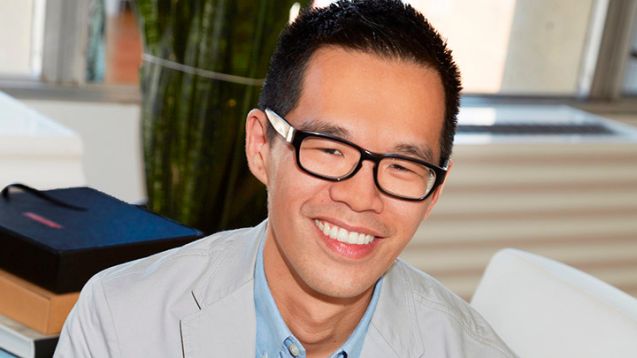Last Thursday, Calvin hosted renowned journalist Jeff Chu for a Q&A with students in the English department.
Chu tackled a variety of topics in journalism, from the practical, economic side to the moral, ethical side.
“I did not think that journalism was a viable career path,” said Chu at the beginning of his talk. His parents didn’t believe that he could make a lot of money doing it and it turns out they were right.
“I made zero dollars in September,” Chu said. “That’s hard. You really have to believe in [journalism] to do it. You can’t go into journalism thinking, ‘Wow, this is really going to be great money for me.’” He advises freelance journalists to take some jobs for the paycheck so they can have money to work on the projects they are really passionate about.
According to Chu, journalism is rapidly changing. “When I started working for TIME magazine in London there were 35 people in the main office, now there are two,” said Chu. Online writing, he said, is one of the main factors contributing to the change. Now, everyone with a computer can write articles and publish them online via blogs or other sites.
Chu believes this emphasis on blogging and personal memoir in our society is narcissistic. “When I first started reporting, I was not allowed to use the first person.” He said that journalists should focus on writing about other people before we write about ourselves. Chu said that asking questions like “Is your writing serving a public purpose?” help determine if we should be publishing it.
Chu challenges journalists to write for the common good and to benefit other people. “What can you bring to the world through your writing that’s unique, that illuminates the world — not just your experience?” he asked during the Q&A. “That’s the question.”
Chu said that students don’t have to study journalism to be a successful journalist. “For the most part, journalism is a trade and a craft and it is something you learn best on the job as opposed to in the classroom.”
Another topic that Chu discussed is the difference between magazine writing and newspaper writing. He said that difference is a big one. He prefers to work for magazines because he likes the lack of a hard deadline and a more personal take on the story. Magazine writing is also constructed in a different way.
For first-year student Mimi Sterenberg, this is exactly what she needed to hear. “This is my first year doing newspaper writing and I’m kinda struggling with it,” she said. “I thought that journalism might not be for me. As I was reading his article, I realized that there’s a whole realm of another type of journalism that he really showed and that I enjoy more.”
Indeed, the event was a hit according to students: “I came into this thinking it was just going to be another speaker but he made some really great points that I had never considered before,” said Sterenberg. “He pointed out some really great tips for future journalists to consider. He put journalism in a great light and it was really great to hear his personal testimony.








